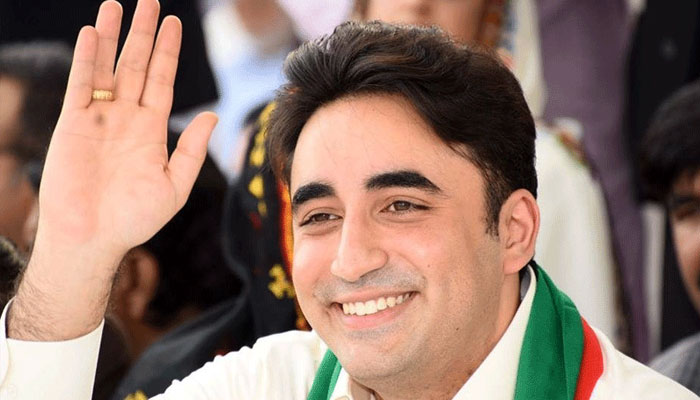M WAQAR..... "A man's ethical behavior should be based effectually on sympathy, education, and social ties; no religious basis is necessary.Man would indeed be in a poor way if he had to be restrained by fear of punishment and hope of reward after death." --Albert Einstein !!! NEWS,ARTICLES,EDITORIALS,MUSIC... Ze chi pe mayeen yum da agha pukhtunistan de.....(Liberal,Progressive,Secular World.)''Secularism is not against religion; it is the message of humanity.'' تل ده وی پثتونستآن
Thursday, March 25, 2021
End Pakistan’s Enforced Disappearances
@pagossmanBy Patricia Gossman
The real tamasha in Pakistan — Islamic council that’s saying no to films and corona taglines
NAILA INAYATPakistan’s official entry to the Oscars, 'Zindagi Tamasha', can’t be seen by Pakistanis — even after two years of fights, cases, and protests.
In 2014, after appearing on a morning show on Geo television, actress Veena Malik, her husband Asad Khan, host Shaista Lodhi, Jang News owner Mir Shakil ur Rehman and Sufi singer Amjad Sabri were booked for blasphemy. It was said that a traditional qawwali sung by Sabri mentioned religious figures and was “offensive”. Sabri was assassinated in 2016 by the Pakistan Taliban. In an incident in 2020, actor Saba Qamar and singer Bilal Saeed were booked for blasphemy for a video shoot for Qabool in Lahore’s Wazir Khan mosque after a campaign led by Rizvi. It happened despite the actor and the singer apologising and explaining that no dance or music actually happened in the mosque. The vicious online attacks resulted in action — first Zindagi Tamasha was dropped, then the team of Qabool was reprimanded and now the lives of the makers and actors are in constant danger. The same happened to the participants of the Aurat March this year: several doctored videos and morphed banners from Women’s Day went viral on social media and an onslaught of blasphemy accusations poured in. This put the lives of several women in danger. Meanwhile, the clerics of Lal Masjid in Islamabad want a ban on the Aurat March as well as Valentine’s Day. A tight rein Every time religious pressure groups like the TLP threaten the government with anti-blasphemy protests, the State’s standard response comes as no surprise. And history keeps repeating itself in Pakistan. From the time the TLP protested in 2017 against the Nawaz Sharif-led Pakistan Muslim League-Nawaz government for changing an election oath, to when Ahmadi economist Atif Mian was removed by the Imran Khan government from an advisory body over backlash, to the most recent demonstrations against the French government for “blaspheming” — the TLP has a tight leash on Pakistan. The Khan government has struck a deal with the TLP promising the expulsion of the French ambassador, not appointing its own ambassador to France and boycotting French goods. But there is no mention of boycotting French aid to Pakistan. Ironically, the prime minister is ready to be blackmailed by TLP supporters who have the weapon of blasphemy, but he won’t be ‘blackmailed‘ by protesters of the Hazara community who demand to be heard by the government against their religious persecution.https://theprint.in/opinion/letter-from-pakistan/the-real-tamasha-in-pakistan-islamic-council-thats-saying-no-to-films-and-corona-taglines/628274/
پیپلزپارٹی آئین کی بالادستی پر یقین رکھتی ہے،بلاول
پیپلزپارٹی کے چیئرمین بلاول بھٹو زرداری نے کہا ہے کہ انکی جماعت آئین کی بالادستی پر یقین رکھتی ہے ،پارلیمنٹ اور آئین کی بالادستی پر کوئی سوال نہیں ہے،چیئرمین سینیٹ کا الیکشن چوری کرنے کیلئے پریذائیڈنگ افسر کے ذریعےغلط کھیل کھیلا گیا۔
معاملہ پارلیمنٹ کی کارروائی کا نہیں انتخاب کا تھا، قانون کی بالادستی کیلئے پر فورمز پر جائینگے، گو کہ آئین ہمیں پارلیمان کی کارروائی پر سوال اٹھانے سے روکتا ہے، لیکن پریذائیڈنگ افسرنے جو کچھ کیا یہ پارلیمانی کارروائی نہیں ووٹ کی چوری تھی۔
اپنے ایک بیان میں بلاول بھٹو زرداری نے کہاکہ ہماری پارٹی آئین اور پارلیمان کی بالادستی میں یقین رکھتی ہے لیکن پولنگ اسٹیشن پر پولنگ عمل کو پارلیمانی کارروائی قرار نہیں دیا جاسکتا۔
سینیٹر یوسف رضا گیلانی نے پریذائیڈنگ افسر کے اس فیصلے کو چیلنج کیا تھا جو اس نے سینیٹ کی پولنگ اسٹیشن میں دیا تھا، پریذائیڈنگ افسر نے 7 ووٹ یہ نشاندہی کرتے ہوئے مسترد کیئے تھے کہ یہ یوسف رضا گیلانی کو ملے ہیں۔
بلاول بھٹو زرداری نے کہاکہ بالا فورم سے رجوع کرنا ہمارا حق ہے، جو ہم انصاف حاصل کرنے کیلئے استعمال کرینگے گو کہ آئین ہمیں پارلیمان کی کارروائی پر سوال اٹھانے سے روکتا ہے۔
https://jang.com.pk/news/902312
